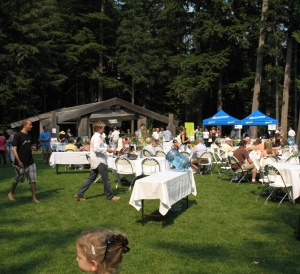
by Katrin R Galati | Jan 11, 2024 | Content Marketing translated, Trends & Events translated
Trends form their way into our lives and can influence, change, inspire, frustrate, or amuse us. It is definitely not necessary to chase after each trend, I prefer to observe the pattern in general and get more insights from what guides those patterns. However, in business, I don’t ignore the Zeitgeist (lit. translation: the spirit of the time) but I like to add my spin to it, and I relate them to my customers who plan to or already do business in English and German.
In the report you can read about 5 trends this year and what they mean for translating your website, app, marketing material, email campaigns, etc., followed by how we integrate them at Translations on Purpose to support clients now – because customer experience is still the number one for us business professionals, right!?
by Translations on Purpose | Aug 24, 2015 | Translation Strategy done!, Trends & Events translated
“Taxi drivers should learn the basics of one or two other languages in order to be able to communicate with foreign tourists.”
Earlier this year, I had shared a link on Facebook to an article about a speech at a Taxi Association division meeting. It said further “Taxi drivers are among the frontliners in the tourism industry. You should equip yourselves with basic language skills so that you can at least greet tourists and ask where they want to go in their own language.”
I couldn’t forget this article and how right it was in its saying that basics of other languages would also improve quality of their service besides helping to boost the tourism industry. It was so obvious. And I started pondering which other professions are frontliners in the tourism industry. Here is what I came up with:
Hotel Receptionists
Restaurant Waiters/Waitresses
Taxi Drivers
Hotel Concierges
City Bus Drivers
Restaurant Hosts/Hostesses
Tour Guides
Tourism Information Center Staff
I am sure there are more…. Let us know!
Although Tourism is the fourth-largest industry in Washington, we became last year the only state in the US with no statewide tourism office and no money from the state to promote our state to travelers. The Washington Tourism Alliance was formed to coordinate state wide marketing and continue branding efforts and take over existing assets, such as Washington’s fabulous state website. We all have it now in our own hands!
Let’s all do something to help boost tourism!
by Katrin Rippel Galati | May 18, 2010 | Trends & Events translated
“Internationalization and branding of a tourism city” was the theme of the International Tourism City Forum 2010 which was held in Sofitel Hangzhou, China. 18 countries from around the world where represented at this forum. This conference was sponsored by the International Tourism Marketing Association (ITMA).
ITMA started in Beijing in March 2007 and since then has built a professional international level marketing service. With that they help tourism businesses with marketing planning, image building, tourism promotion, festivals and celebrations, etc. ITMA created and is involved in yearly major international conferences.
“The important trend for world tourism development is internationally convergence and integration. International marketing has become an important way for tourism destination. Language becomes the first obstacles when it comes to international tourism marketing and internet becomes the best tool to depend on. How to use internet to spread image and information for tourism destination? How to use multilingual platform to inform the target tourists’ countries?” (read more… )
ITMA owns now a multilingual international website, www.itmacom.com, which offers content in Chinese, English, Korean, Japanese, Russian, German, French, Arabic and Spanish.
Excited, I went to the website and clicked on all the pages in different languages. Well, it seems to be a work in process, as I couldn’t access any foreign language info except for some English. I was very fascinated by the global multilingual vision I read on ITMA’s info website, yet really disappointed in seeing the poor integration upon reviewing the website. This is a really good example that it is important that you do what you promise to your website visitors. You don’t have to integrate your whole vision at once, you can start with an i.e. one page summary in the foreign language, or translate the most important pages and inform your visitors when clickable content leads to non native pages. You show respect this way, and don’t lose your credibility. I will revisit ITMA’s website in few months, maybe.
by Katrin Rippel Galati | Sep 4, 2009 | Trends & Events translated
This time being in Beautiful British Columbia, I passed Vancouver and continued driving Highway 99, the Sea to Sky Highway, up to Whistler, the Host Mountain Resort of the 2010 Olympic & Paralympic Winter Games. Filled with utmost curiosity I was off to an event in Whistler’s Rebagliati Park where I would participate in celebrating the “connection between farm and fork” with a Feast in the Mountains!
In this inaugural year of Feast in the Mountains the Chefs represent Whistler’s brightest culinary talents and some of the finest BC beverages.
With the wine glass and a menu received at the entrance, I walked from booth to booth various times, tasting beautiful arranged tidbits of food in the order they appealed to my palate (and personal sense of menu order). While taking my time, I ventured to the quieter booths of the producers of that bounty. “Amongst the beauty of these mountains lie fertile lands that have long produced food for this valley and beyond. Upon that land a small number of committed farmers toil without glamour or acclaim to ensure the integrity of our food chain. This event is inspired by them – their commitment in the face of great challenges, their passion for the land that sustains us”, writes Astrid Cameron, Co-founder/Co-producer of Feast in the Mountains.
beautiful arranged tidbits of food in the order they appealed to my palate (and personal sense of menu order). While taking my time, I ventured to the quieter booths of the producers of that bounty. “Amongst the beauty of these mountains lie fertile lands that have long produced food for this valley and beyond. Upon that land a small number of committed farmers toil without glamour or acclaim to ensure the integrity of our food chain. This event is inspired by them – their commitment in the face of great challenges, their passion for the land that sustains us”, writes Astrid Cameron, Co-founder/Co-producer of Feast in the Mountains.
Furthermore, several organizations were represented; I encourage you to check them out:
Slow Food, an international organization that was founded in 1986 as a response to the standardizing effects of fast food and the fast life. It supports good, clean and fair food. Ocean Wise, Canada’s leading sustainable seafood restaurant program, Green Table, a network of sustainable foodservice and their suppliers in the greater Vancouver, BC area (although foodservices from elsewhere are welcome), and Farm Folk/City Folk, an organization that connects farm and city and that focuses on cultivating a local, sustainable food system.
I really liked the relaxed atmosphere full of laughter that comes along naturally with good quality food and drink (especially in an outside setting). Yes, it was a great feast in the mountains – and also a conscious one that celebrated the whole food chain and gives dining out again a meaning of true hospitality.
Find all pictures taken at this event at our flickr site

by Katrin Rippel Galati | Jan 4, 2008 | Trends & Events translated
Janet Podolak of The News-Herald, Willoughby, the OhioMcClatchy-Tribune Regional News wrote an about the reactions restaurateurs take in order to cope with the constantly rising prices of food.
The rising costs of flours, eggs and produce are hitting independent restaurateurs. Additionally, they are faced with empty tables as dining out is the first thing people cut from their budget when costs of living (such as gas prices high as $4 per gallon and more) raise tremendously.
Charging extra for bread, condiments and carry-out containers might be a solution, yet there are much more, although, some involve some change of habits.
Such as long forgotten or never utilised cost-conscious methods of using ingredients and produces like using broccoli stems for soups or grating them into slaws. Janet Podolak interviewed Randal Johnson, owner-chef at Molinari’s in Mentor, who said that “when he realized that the brine in pickles has vinegar and sugar in it, he used it in his tartar sauce. Delighted diners soon were commenting on the great taste.”
Others chose to discontinue seafood bars or reinventing themselves. Action is taken by joining trade associations and becoming well-connect with the restaurant community to find solutions together, or creating cooperatives in buying produce or ingredients.
Often by customers recognized “too big portions” get finally reduced to appropriate portions (vs. stacking up guest’s refrigerators with to go boxes of leftover food.)
Some owners created backyard gardens and grow vegetable: Fennel, Napa cabbage, Swiss chard, cucumbers, tomatoes.
Podolak writes about Chef Nick Kustala of Lure Bistro in Willoughby who said: “A flat of tomatoes costs me $18, and one plant produces 20 tomatoes. It helps us keep our prices down.”
Furthermore, he says in Podolak’s interview that “he urges diners to support independent restaurants, instead of chains, when they eat out.”
Kustala concludes: “Chains are great and Wal-Mart is great too, but all that money goes to China. It’s better to keep money in the area and keep our jobs here. You can feed yourself and the economy at the same time.”






